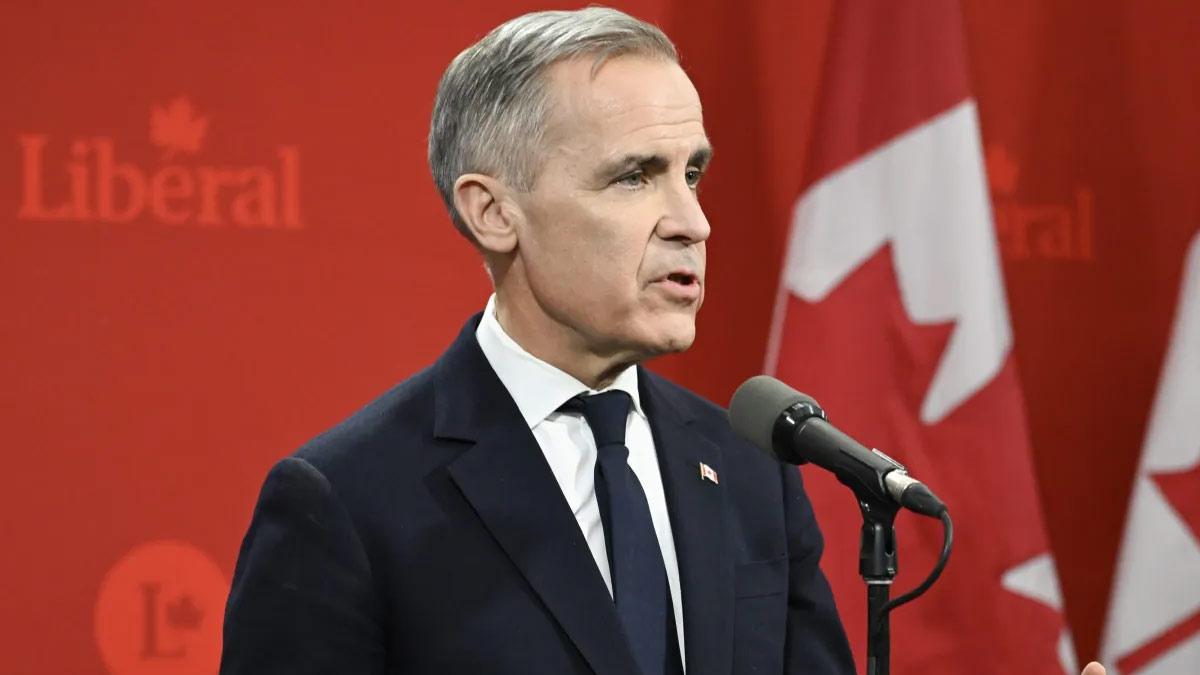Canadian Prime Minister Mark Carney fiercely rebuked U.S. President Donald Trump's recently applied auto tariffs, terming them as a "direct attack" against Canada and threatening that the intensifying trade war is harming Americans. Carney referred to a severe fall in U.S. consumer confidence as proof of the economic harm.
Earlier on Wednesday, March 26, 2025, Trump imposed a 25% tariff on imports of autos and indicated clearly that the action was "permanent."
"This is a direct attack," retorted Carney. "We will stand with our workers, our businesses, and our nation."
Carney said that he would review the details of Trump's executive order before determining countermeasures. Calling the tariffs unjustified, he declared intentions to take a temporary break from his election campaign to go back to Ottawa on March 27, 2025, where he will chair a special Cabinet committee session on U.S.-Canada relations.
To help cushion Canada's auto industry, Carney had earlier established a CA$2 billion ($1.4 billion) "strategic response fund" that would help defend jobs in the sector. He highlighted the industry's importance, pointing out that it is Canada's second-largest export, supporting 125,000 direct workers and close to 500,000 in sectors related to the industry.
"Canada stands with its auto workers," Carney asserted.
Trump had originally exempted Canada and Mexico from the tariffs for a month, providing temporary relief to American automakers. But his overall trade war plan has sent global uncertainty into a tailspin, with new tariffs constantly being proposed or pulled back.
On Tuesday, March 25, 2025, the Conference Board announced a dramatic fall in U.S. consumer confidence, which fell 7.2 points in March to 92.9—the fourth straight monthly decline and the lowest reading since January 2021.
"Trump's trade war hurts American consumers and workers, and it will get worse. Consumer confidence is at a multi-year low," Carney stated at a campaign rally in Windsor, Ontario, ahead of Canada's April 28 vote.
With new tariffs being implemented in April, automakers must contend with higher production costs and possibly weaker sales.
Trump previously put tariffs of 25% on Canadian steel and aluminum and threatened to put tariffs on all Canadian exports, along with other trading partners, beginning April 2.
"He wants to make us weak so he can overpower us," Carney asserted. "But that's never going to happen, because Canadians don't just look after themselves—we look after one another."
Carney, a retired central banker, spoke against the background of the Ambassador Bridge, the busiest Canada-U.S. border crossing, which handles 25% of the two countries' trade. He emphasized the bridge's economic significance, noting that it handles CA$140 billion ($98 billion) of goods per year, or CA$400 million ($281 million) daily.
"Those numbers, the jobs, and the livelihoods they sustain are now in jeopardy," he cautioned. "The U.S.-Canada relationship has shifted, but we are not the ones who shifted it."
The auto business is dependent on cross-border commerce, with components frequently shuttling back and forth several times before cars are completely assembled in Ontario or Michigan. Ontario Premier Doug Ford, whose province is the base for most of Canada's auto business, warned that factories on both sides of the border might be shut down simultaneously if the tariffs persist.
"Trump is referring to this as 'Liberation Day.' I refer to it as 'Termination Day' for American workers," Ford said. "We all know Trump enjoys saying, 'You're fired!'—but I didn't think he meant U.S. auto workers."
Trump's more and more belligerent attitude towards Canada, including his demand that the nation become the 51st U.S. state, has caused widespread indignation among Canadians. During a campaign rally in Kitchener, Ontario, Carney supporters booed loudly at any reference to Trump.
Since assuming office on March 14, Carney has not spoken with Trump, an unprecedented diplomatic silence between the leaders of two close friends.
A conversation between the president and me would be in order considering what he has done. I hope that will occur soon," Carney said.
Opposition Conservative Party leader Pierre Poilievre meanwhile slammed the tariffs, saying they would hurt American auto workers as much as their Canadian counterparts.
Our message to Trump needs to be simple: Stop this rubbish," Poilievre said. "He's done it before—he's put tariffs on, then took them off. It's very likely he'll do it again this time.
Read also| China Warns US Against Imposing ‘Hegemonic Logic’ on Beijing
Read also| Canada’s Indian-Origin MP Chandra Arya Dropped by Party Over Alleged India Links: Report


















